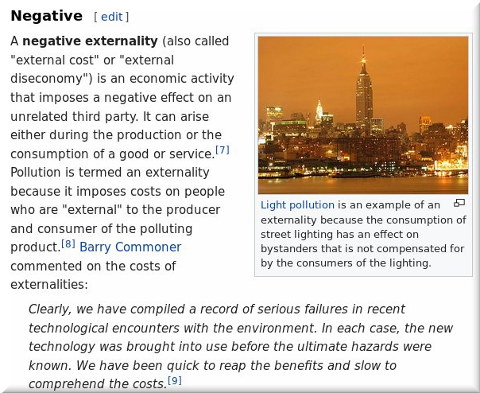

Reference: Wikipedia
THE EPO can't help repeating the same mistakes that had made the US patent office a trolls factory until not too long ago (patent scope was belatedly limited -- a subject to be explored again separately, maybe later today).
"Sloppy patent examination may be profitable to the Office (in the short term at least), but it externalises -- in the externality sense -- all the damages."The latest cartoon from inside the EPO serves to show that even patent examiners recognise the effect of low-quality patents on small businesses and trolls. The patents can be invalidated by the courts, but at what cost and whose expense? Sloppy patent examination may be profitable to the Office (in the short term at least), but it externalises -- in the externality sense -- all the damages.
A relatively long new comment, posted some time last night, speaks of the reduction in patent quality at the Office. It's worth reproducing in full because it's buried several pages deep in some old Merpel article (from last year, before the self-censorship became more official):
The comments above give the impression that the plan was to improve production and that quality was just an unfortunate casualty of production pressure. But I think that lowering quality may actually have been a goal of its own, even if I don't exactly understand what is achieved by a lower quality. Consider what happened in the past years: -first, about 4 years ago, search and examination were reorganized, officially so that technical domains were not split between The Hague and Munich. In practice, however, in many cases it seems that domains were chosen to insure that a maximum of examiners had to change and therefore search and examine something which did not correspond to what they had learned to do. The training which was offered was often minimal. -this completely unnecessary destruction of competence is not a huge problem in examination (people can adapt much more easily in examination) but is a much bigger problem in search (it takes one to two years for an engineer to be familiar with the collection of documents), but... -second, about 3 years ago, search became a top priority and examiners had to do search files under time pressure (as an arbitrary short delay was set on them). Many had no time for examination any more -because of the strange way production is internally measured, this also meant that examiners had artificial higher production figures (search is counted with 50% more points than examination) -third, about a year ago, searches dried up and reducing examination backlog became a top priority. The examiners had to do more examination, but only final actions count towards our internal production figures (only grants or refusal, no intermediate communications). Examiners are not supposed to have their production figure decrease ever or your director will come to you and start to discuss retirement or dismissal for professional incompetence. That means that an examiner who had done, say, 80 "urgent" searches in 2015, not finding much prior art in a domain he or she was not familiar with, suddenly had to do 120 final actions in 2016 (they count 50% less). Many of them worked longer hours or brought files home.
Add a few items to fine-tune the process: -we hire as much as we can, the new people must be trained by existing examiners, only do searches in the beginning (while common sense would have them start by examination) and are under an enormous production pressure. -some examiners, particularly less scrupulous ones with very high production figures, are moved around, become team leaders (so that they can explain their colleagues how to increase production) and generally are spread around so that each directorate has a few high producers (and the note at the end of the year is dependent on the ranking within a directorate). -there are still regular transfers of people to technical domains they do not really know -I know at least two examiners who were pushed toward retirement because they rejected too many patents.
So, I may of course be wrong, but I have the feeling that lowering quality is part of a concerted plan. It does not happen by chance, just as it did not happen "by chance" that of 3 people dismissed, all 3 of them were prominent union officials.
"What Battistelli has been doing is going to cost literally billions (if not more than a trillion Euros) to Europeans.""Don't forget that the President and his friends earn considerably more for a work which, at best, can be described as mediocre," one person just wrote, adding a reference to Merkel by saying: "Thank you for all these years. Is there any way we can convince you to come by from time to time?"
A letter to Merkel in German and in English was reproduced here very recently. It's sad that by silence (as in "conspiracy of silence" one might argue) she facilitates a destructive force at the very heart of Europe -- one which without a doubt is going to ruin a lot of Europe's industry and the taken-for-granted leadership. ⬆